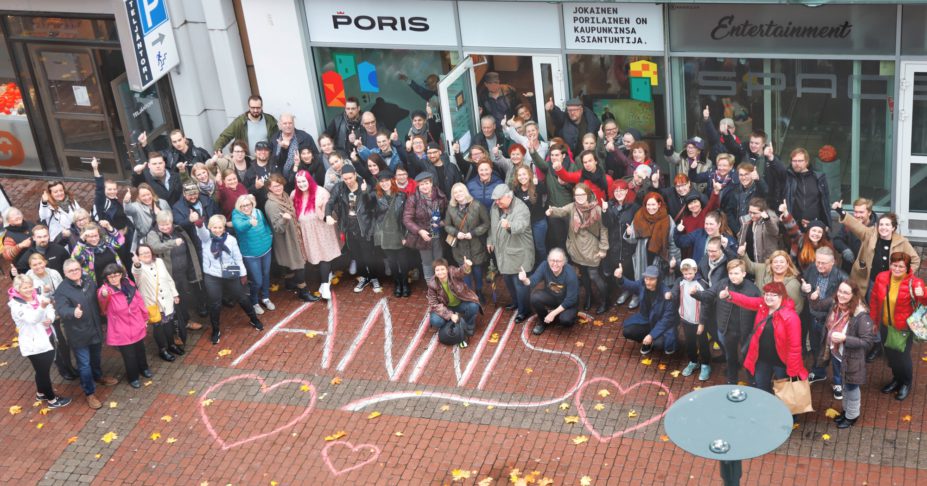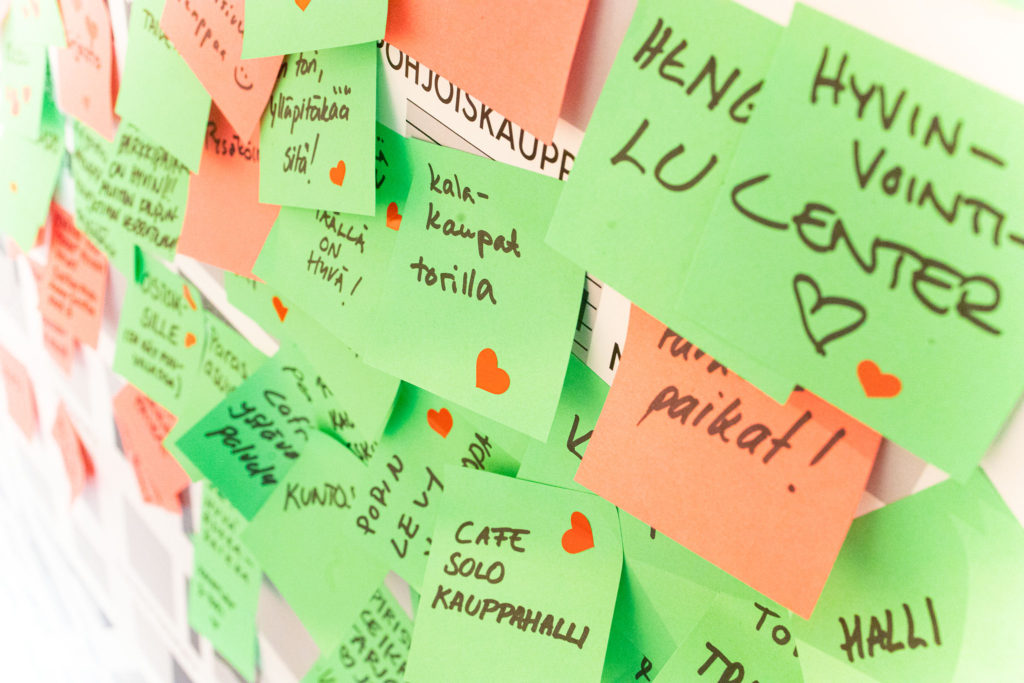 Case studies
Case studies
- Where: city centre of Pori, Finland
- Space: district, downtown, green area, degradated, Closed block structure
- Number of residents: 20 000
- Area size: 8 km²
- Organisers/authors
Pori municipality, culture department
Case Study
New plan for the city centre
Planning with new methodology
What happened?
Cultural and planning department fo the City of Pori started to work on a new methodology to replace the outdated plan for city centre from 1994. The UCP team mapped the area and collected valuable data. They established a pop-up shop called Poris: Research Centre of Pori City Centre. Over 2000 residents participated in the shop and gave over 2400 ideas and thoughts about the city centre. Since then they have worked with other city departments to create a unique bottom-up methodology. They aim to create a co-creation process to support the daily development of the area. The project included many artistic interventions and events such as Poris: Dialogue Village concentrated specifically on one outdoor space, the Central Square or focused on Kokemäenjoki river bank during the event Green and Blue.
- Who can help?
- other departments of city administration
- local NGOs
- artists
- researchers
- local businesses

Why?
The city centre of Pori seems deserted, it functions predominantly for elderly people, with community centres for the elderly. The sense of decline is worsened by the empty shop windows on the pedestrian streets. Enterprises are moving to the shopping malls or are going bankrupt because of the lack of pedestrian traffic. Linked to this is the motorisation of the city.
Like other cities in the Global North, Pori is facing challenges due to climate crisis. The winters are getting warmer, and the activities that used to be fun and brought communities together, such as skating and skiing, are limited to fewer and fewer winter days. The challenge was also the cross-sectorial collaboration between the different departments in the municipality, that was advocated by dedicated individuals and teams.

How? (tools & methods)
- The organiasiers used the frameork of cultural planning as a guidance rather than strict method. They combined mapping, visioning, desinging in all of their implemented projects.
- The Poris pop-up shop created a space for gathering information and cteared momentum for change. It was filled with activities, discussions and also cooking with creative residents Jonas Buchel and Abdul Dube (graphic facilitator).
- They created a public art exhibition in shop windows and "Block Party" in and old car sales garage waiting for demolition.
- The Dialogue Village in the Keskusaukio square activated the place with discussions, decorations, music and exchange.

For whom?
- Most of the actions were based on location, rather than targeting specific groups. They worked with:
- students,
- children,
- city officials,
- tourists
- immigrants
- elderly people
- How much time is needed?
- 4 months of initial mapping and getting started
- 2 years of reacurring activites creating knowledge about needs and plans for the future paused with 2-3 months of analysing the findings
- and 1 month of actual work on official documents for new plan
What should you be aware of?
The biggest risk when working with specific groups is the risk of nothing happening. If people get excited about a certain topic and then we as operators or the city fail to deliver, that creates risk. People might lose faith in us or get frustrated. - curators
What worked out?
Curators say:
- "In 2019 we organized Wednesday urban club gatherings, where we discussed urban issues from the perspective of the local art scene. From those gatherings, we started an urban action group called Boris and Borelia and actually hired some of the people to work with us. That enabled them to get deeper into urban processes. They have continued this work with their own artistic output. This has started a new era in the local art scene, where some artists see themselves as relevant urban actors and not just as people on the outskirts of society. "
